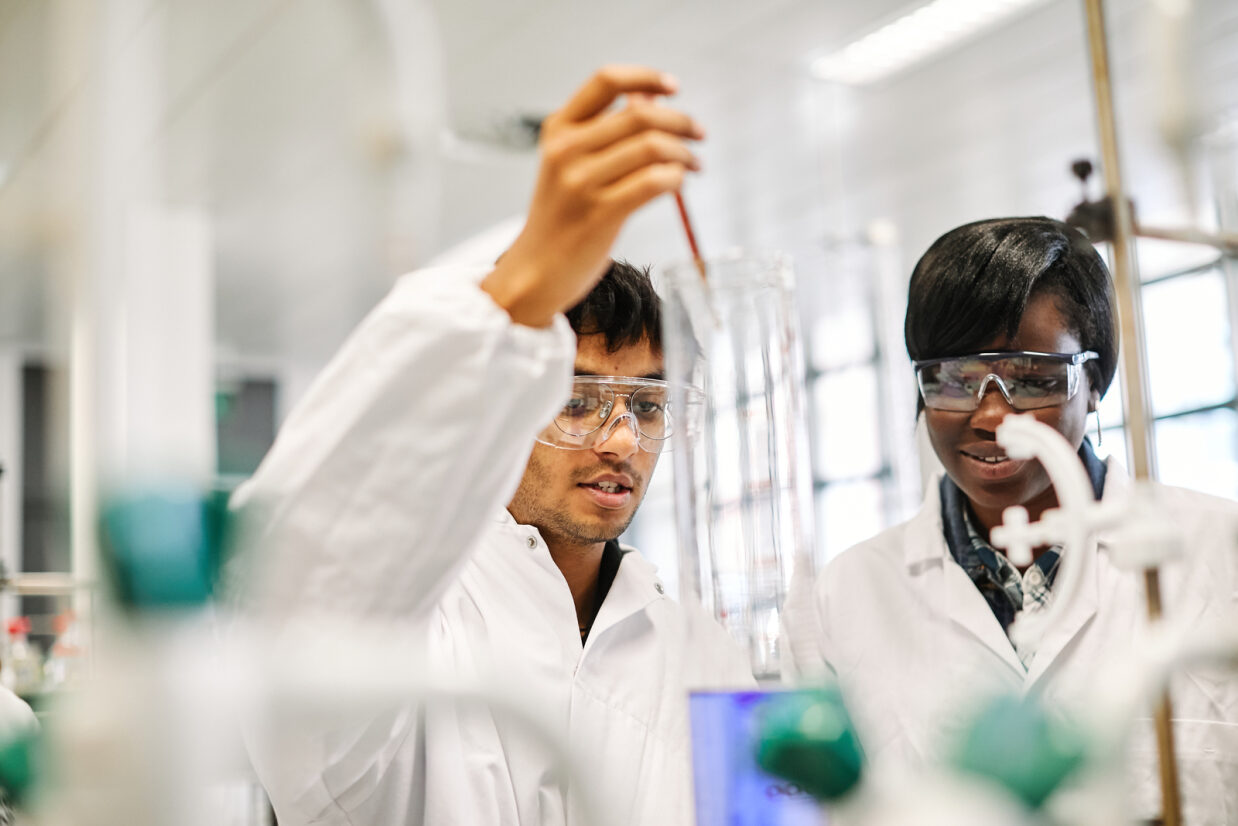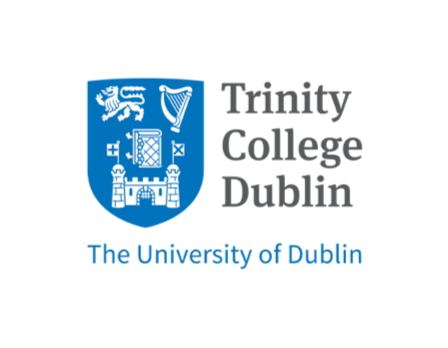To truly thrive in the world of chemistry, you’ll need more than just textbooks and lectures — you’ll need an education that pulls you into the heart of discovery. This is why learning is an active, joyous pursuit at Ireland’s top university. Ranked 81st in the world, according to the QS World University Rankings 2024, Trinity College Dublin is home to an equally impressive School of Chemistry, which has made great strides since its inception in 1711. Today, it is a research-intensive powerhouse with an annual research income of approximately five million euros.
Conducting these studies are some of the best minds in chemistry, including Professor Valeria Nicolosi, who is recognised among the world’s best scientists for her industry-shaping work in materials science. While serving as a Professor of Nanomaterials and Advanced Microscopy, she secured over 25 million euros in funding over the last decade and has maintained her status as Ireland’s only seven-time European Research Council awardee.
Her group recently developed a new method for creating batteries that are more compact, inexpensive to produce, scalable for industry, and capable of fast charging with 250% higher energy density than current technologies.
She isn’t the only one exemplifying the School of Chemistry’s commitment to real-world impact. Professor Wolfgang Schmitt and his team are using advanced porous materials to capture CO₂ from the air and integrate it into industrial processes. This technology, currently being trialled at major locations such as Dublin Airport, IBM, and CERN, can capture up to five tonnes of CO₂ annually, offering a scalable solution to one of the world’s most pressing environmental challenges.
His colleague, Professor Joanna McGouran, has pioneered a new way to study enzyme activity. Her innovative use of in-situ activation enables these probes to act only when needed, like undercover agents waiting for the perfect moment to strike. This method opens up new possibilities in therapeutic development, providing more precise control over biological processes.

Source: Trinity College Dublin
It’s these kinds of advancements that keep Trinity at the forefront of science, with its students not just along for the ride but in the driver’s seat, shaping the future of discovery. At the School of Chemistry, small class sizes ensure that at every stage of your education, you’ll have direct access to experts — the same ones leading pioneering studies and projects, from the Trinity Biomedical Sciences Institute to the 40 million euro AMBER (Advanced Materials and BioEngineering Research) Centre.
It was their insights and the School of Chemistry’s effective blend of theory and hands-on learning that empowered BA graduate Áine Coogan to pursue a PhD. “The great thing about chemistry here at Trinity is this fantastic mix, which offers you the ability to learn theory in your lectures and then apply it in your lab classes in the days and weeks afterwards,” she says. “Having that support network both amongst the research group and in the wider chemistry community in general helped me make that decision.”
Now, as a postdoctoral researcher in Professor Yurii Gun’ko’s materials group, Coogan focuses on chiral nanomaterials — mirror-image molecules like DNA that play a key role in biological processes. Her work aims to advance applications in diagnostics, sensing, and therapeutics.
Guidance from experts like Professor Gun’ko is invaluable for ambitious students seeking stellar prospects. In fact, School of Chemistry graduates are highly sought after by the many multinational tech companies in Ireland, many of which have established their European and Middle Eastern headquarters here.
The School of Chemistry’s Chemical Sciences stream could be your gateway to such organisations. On this route, your first two years will revolve around laying a solid foundation, diving deep into core science topics, and ensuring you’re equipped with the essentials to tackle advanced modules.
After mastering the basics, you’ll choose from various specialised modules that cater to your individual aspirations. Interested in molecular modelling? You’ll study Solid State Materials and Modelling. Leaning towards medicinal chemistry? Drug Design and Development will be your focus. Nanoscience enthusiasts will find themselves immersed in the Chemistry of Polymers and Macromolecules, while those with an eye on the biosciences can explore cutting-edge topics such as Genomes, Disease and Diversity, Nucleic Acids, and even Introduction to Immunology and Immunometabolism.
This flexible structure means you can explore your interests while keeping your career options wide open. By the time you graduate, you will possess in-depth knowledge of chemistry and the kind of transferable skills today’s employers actively seek. The capstone project in your final year — a substantial independent research project — is your chance to showcase everything you’ve learned, bringing together the knowledge, skills, and experiences of the past three years.

Source: Trinity College Dublin
Who knows? You might make a meaningful impact in the process of applying knowledge. Here, all world-changing ideas are welcome. The School of Chemistry’s recent upgrade to a Silver Athena SWAN Award in 2023 proves its dedication to equality and excellence. Future chemists, this is the sign you’ve been waiting for to make your mark in science and make a difference in our world. Apply to the School of Chemistry today.
Follow Trinity College Dublin on Facebook, Instagram, X, YouTube, and LinkedIn













